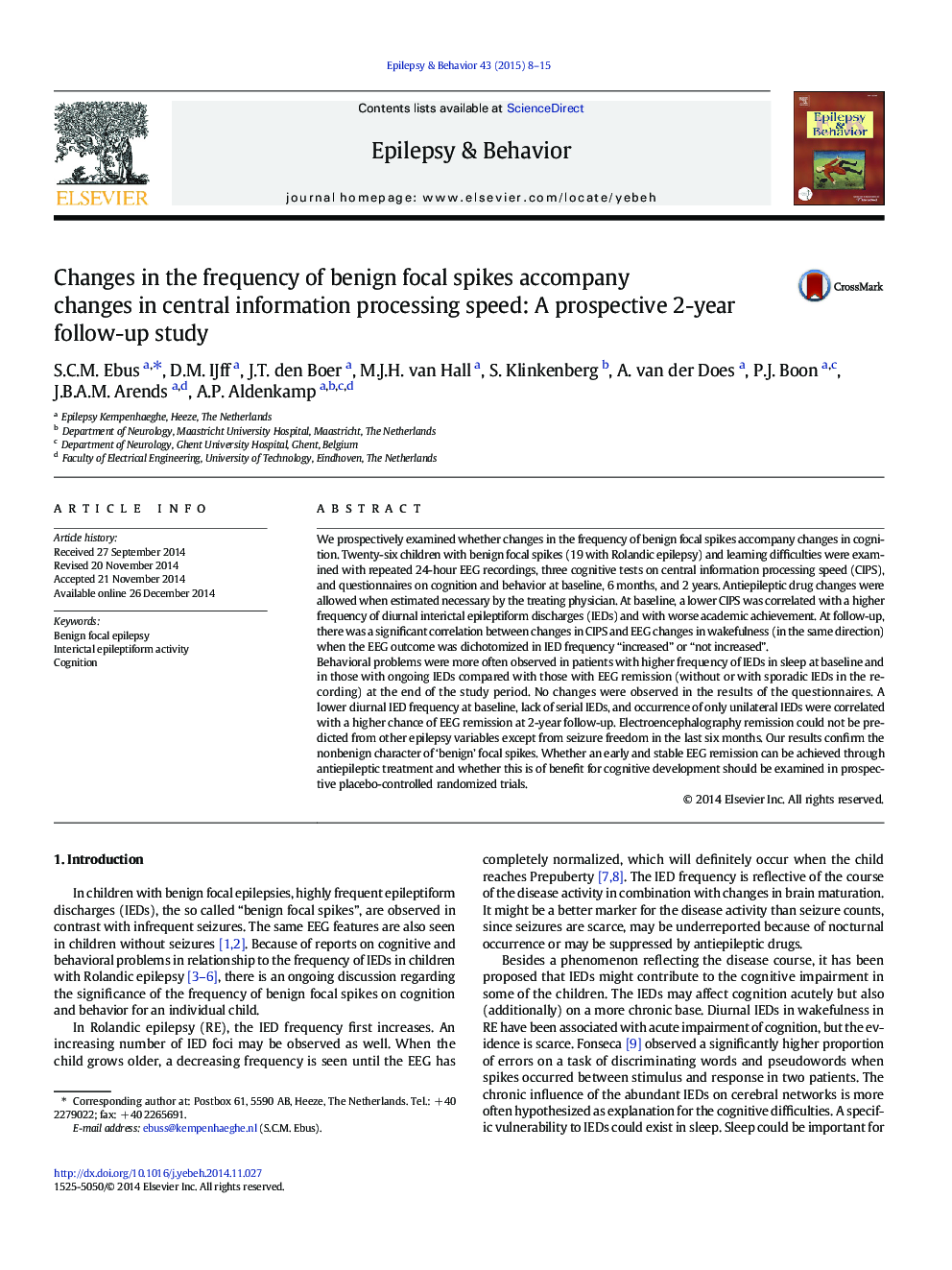| Article ID | Journal | Published Year | Pages | File Type |
|---|---|---|---|---|
| 6011417 | Epilepsy & Behavior | 2015 | 8 Pages |
â¢Cognition and benign focal spike amount were repeatedly examined over two years.â¢Lower information processing speed was correlated with higher awake spike frequency.â¢Change in processing speed was correlated with change in spike amount in wakefulness.
We prospectively examined whether changes in the frequency of benign focal spikes accompany changes in cognition. Twenty-six children with benign focal spikes (19 with Rolandic epilepsy) and learning difficulties were examined with repeated 24-hour EEG recordings, three cognitive tests on central information processing speed (CIPS), and questionnaires on cognition and behavior at baseline, 6Â months, and 2Â years. Antiepileptic drug changes were allowed when estimated necessary by the treating physician. At baseline, a lower CIPS was correlated with a higher frequency of diurnal interictal epileptiform discharges (IEDs) and with worse academic achievement. At follow-up, there was a significant correlation between changes in CIPS and EEG changes in wakefulness (in the same direction) when the EEG outcome was dichotomized in IED frequency “increased” or “not increased”.Behavioral problems were more often observed in patients with higher frequency of IEDs in sleep at baseline and in those with ongoing IEDs compared with those with EEG remission (without or with sporadic IEDs in the recording) at the end of the study period. No changes were observed in the results of the questionnaires. A lower diurnal IED frequency at baseline, lack of serial IEDs, and occurrence of only unilateral IEDs were correlated with a higher chance of EEG remission at 2-year follow-up. Electroencephalography remission could not be predicted from other epilepsy variables except from seizure freedom in the last six months. Our results confirm the nonbenign character of 'benign' focal spikes. Whether an early and stable EEG remission can be achieved through antiepileptic treatment and whether this is of benefit for cognitive development should be examined in prospective placebo-controlled randomized trials.
